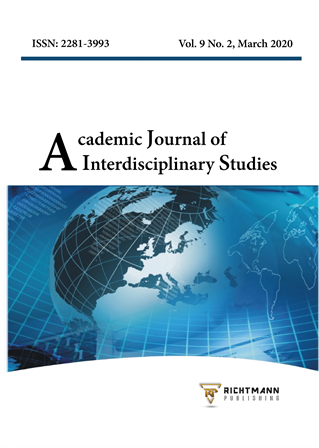The Influence of Absorption Graduates Vocational Education: A Case Study
DOI:
https://doi.org/10.36941/ajis-2020-0023Abstract
This study aims to determine the factors that influence employment absorption of vocational high school (SMK) graduates. This research is a case study in three Vocational Schools with a sample of 120 people from 11-12th grade students. Data collection was carried out using a questionnaire and analyzed with the help of the Lisrel 8.80 program. This study found that the School Management (SM) and Industrial Environment (IE) variables had a positive effect on the Teaching Factory (TF) variable. Furthermore, all three variables (SM, IE, and TF) have a positive effect on the absorption variable of vocational high school graduates (ALV). Even the SM and IE variables have a greater positive effect than TF on the ALV variable. This means that the Tefa (TF) program still does not support graduates in getting jobs, especially because it is more directed towards low skills and unable to meet DUDI needs for middle and highs level competencies. It is recommended that the government needs to authorize schools to develop education in accordance with environmental condition potential, increase cooperation between schools - local governments - DUDI, enhance Tefa learning which refers to developing secondary and high skills to meet competencies according to the needs of the world of work by developing curricula and work practices together.
Downloads
Downloads
Published
Issue
Section
License
This work is licensed under a Creative Commons Attribution-NonCommercial 4.0 International License.








